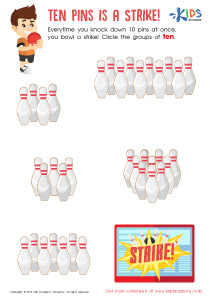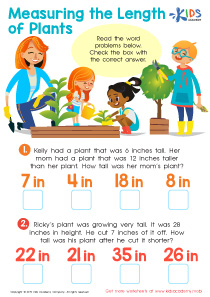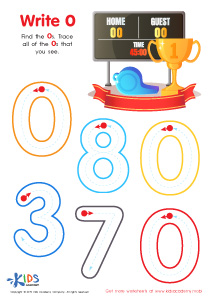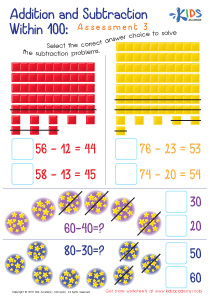Counting skills Easy Numbers up to 100 Worksheets for Ages 3-6
6 filtered results
-
From - To
Enhance your child's counting skills with our "Counting Skills Easy Numbers up to 100 Worksheets" designed for ages 3-6! These engaging and visually appealing worksheets offer a fun way for young learners to practice counting and recognizing numbers up to 100. Each worksheet includes a variety of activities, such as number tracing, counting exercises, and creative illustrations to keep children motivated. Perfect for home or classroom use, our resources promote early math skills while encouraging independent learning. Help your child build a strong mathematical foundation with our easy-to-use worksheets that ensure they enjoy every step of their counting journey!
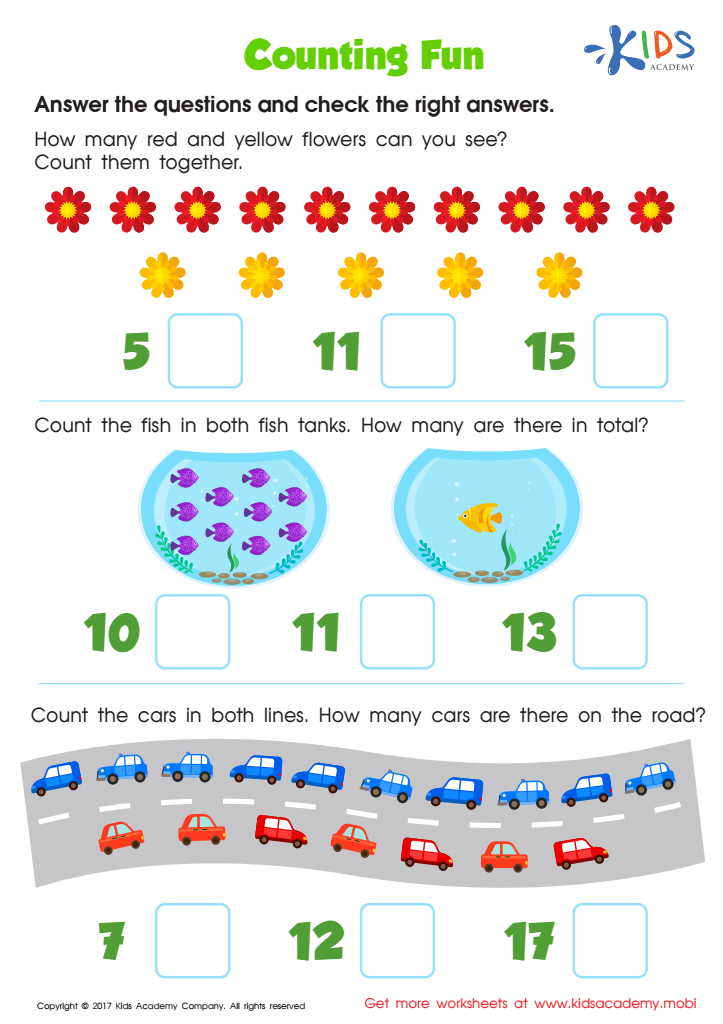

Counting Fun Worksheet
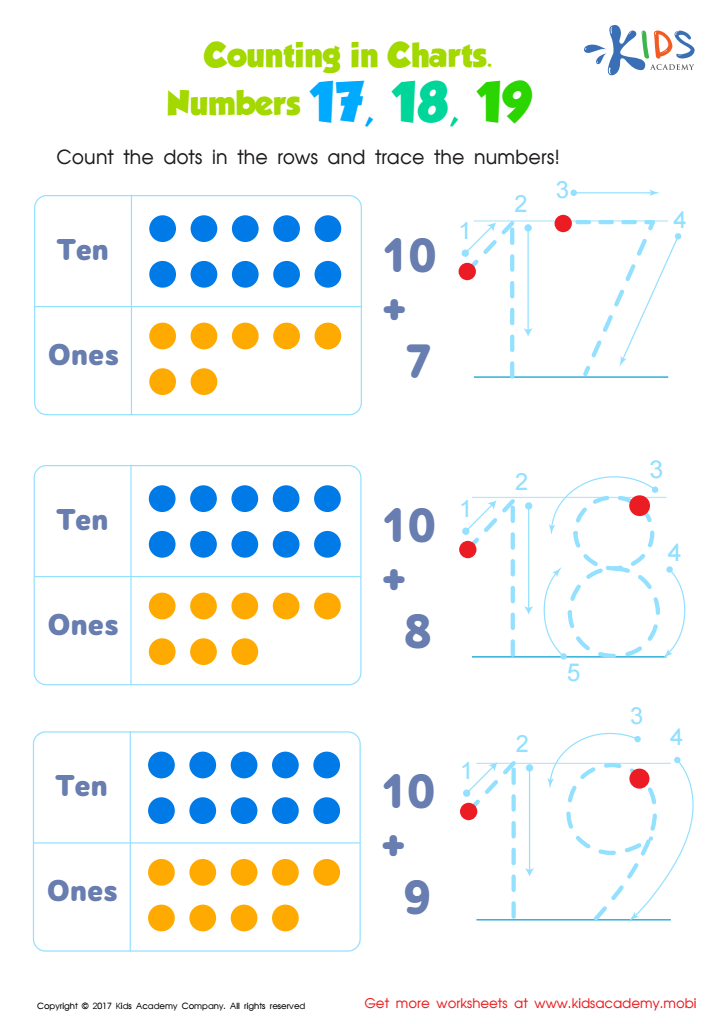

Kindergarten Number Tracing: Counting in Charts Worksheet
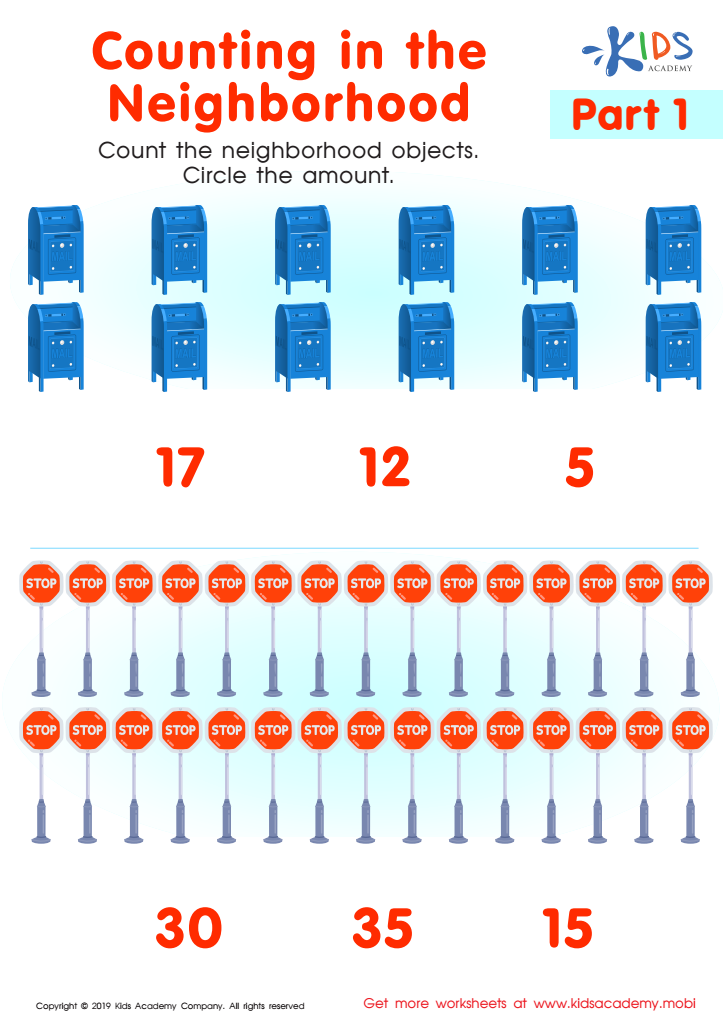

Counting in the Neighborhood Part1 Worksheet
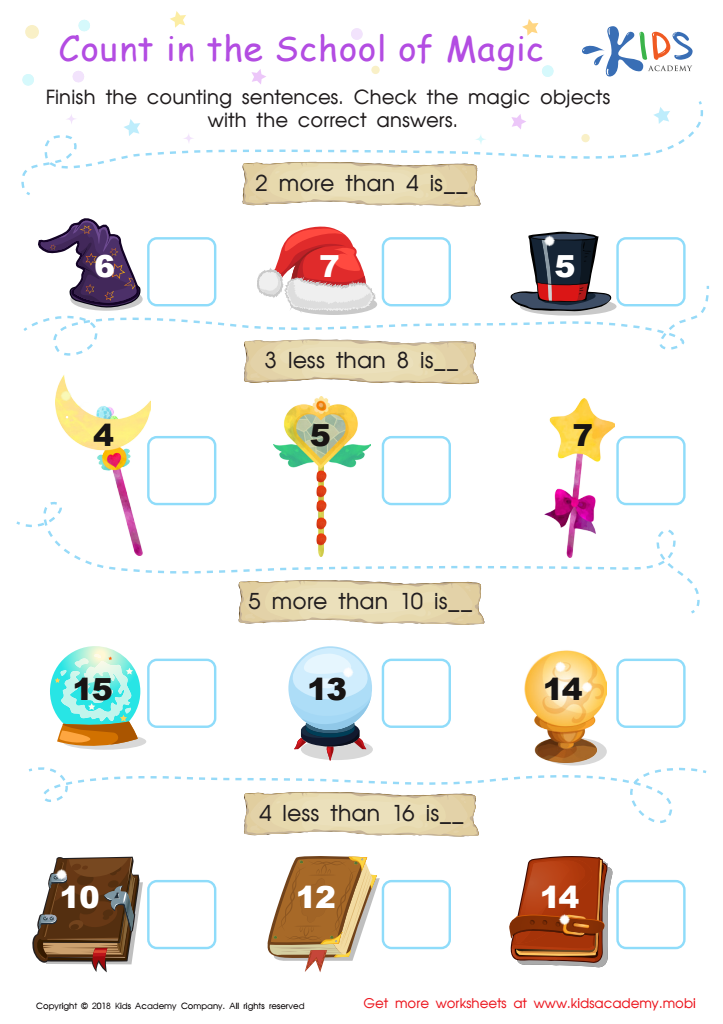

Count in the School of Magic Worksheet
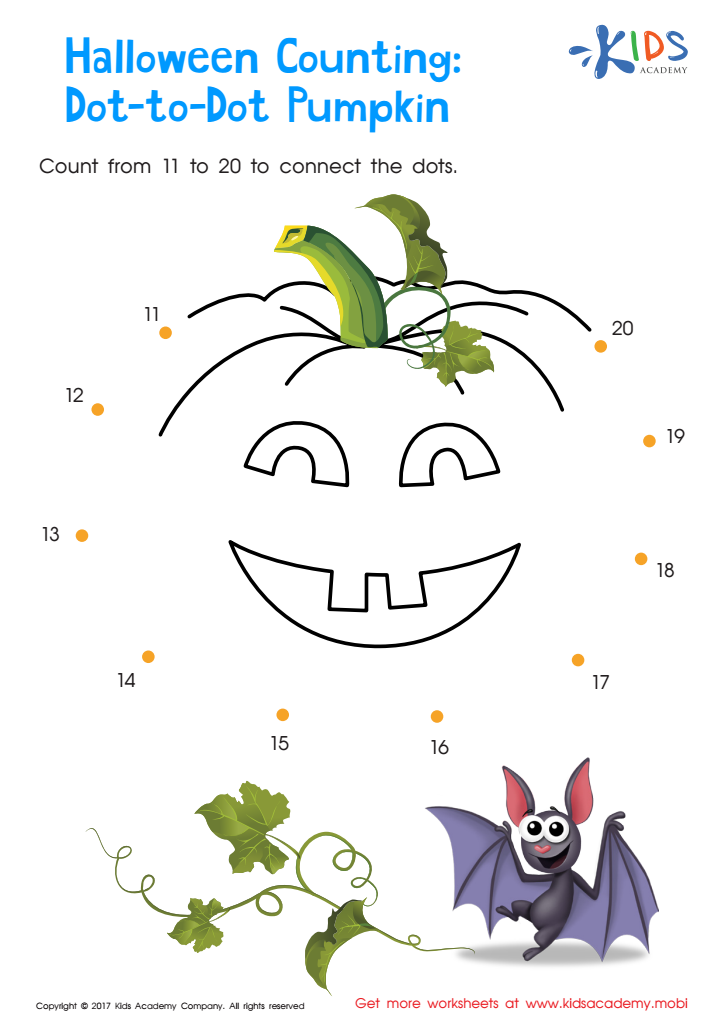

Ordering 11–20: Halloween Counting Worksheet
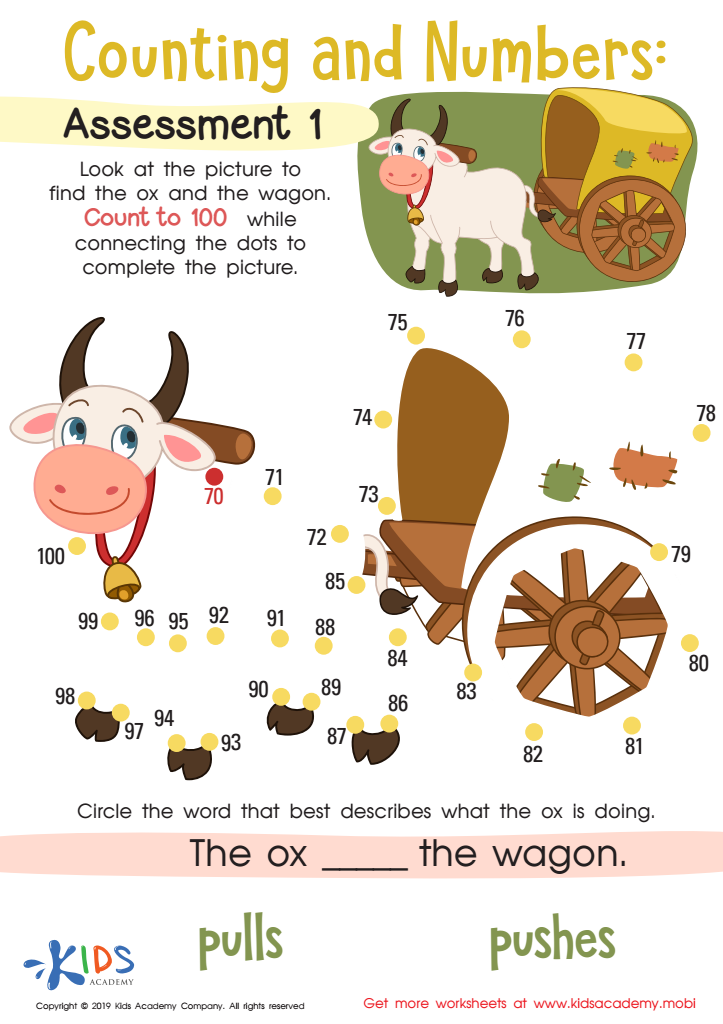

Counting and Numbers: Assessment 1 Worksheet
Counting skills in children aged 3-6 are foundational for their mathematical development and overall cognitive growth. During this critical stage, young children learn to recognize numbers and understand their quantity, setting the groundwork for more complex math concepts later on. Early counting skills enhance problem-solving abilities and promote logical thinking, essential for navigating both academic and everyday challenges.
Parents and teachers should prioritize counting because it nurtures children's curiosity and confidence. By engaging in counting activities with easy numbers up to 100, young learners develop a sense of rhythm and pattern recognition, crucial for number understanding. These skills encourage foundational literacy that goes beyond math, fostering language development through number names and associated vocabulary.
Moreover, counting activities can be integrated into everyday life, making learning seamless and enjoyable. Whether counting toys, snacks, or steps taken, these everyday moments reinforce counting concepts implicitly and meaningfully. Encouragement and support from parents and teachers also create a positive learning environment, motivating children to explore numbers further. Ultimately, strengthening counting skills in early childhood paves the way for academic success and confident, capable learners prepared for future challenges. Investing in these abilities is crucial for laying the groundwork for lifelong learning.
 Assign to My Students
Assign to My Students







%20(1).jpg)


